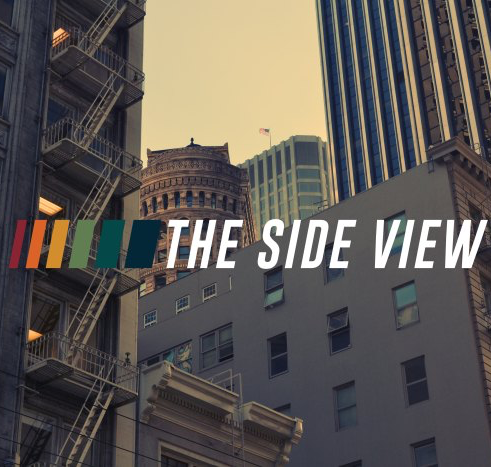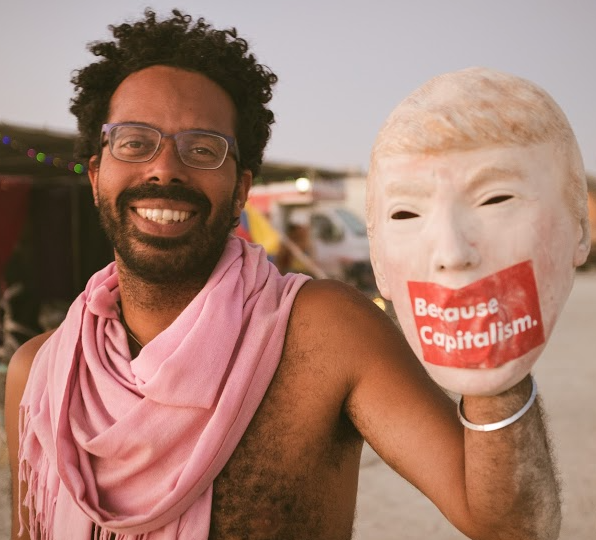
Rainbow Gathering flashback
It was the last day of 1991’s national Rainbow Gathering, which took place on a marvelous meadowed slope on the side of one of Vermont’s Green Mountains. I had already packed my stuff up and was headed lazily towards the exit when I came across a dozen or so folks, holding hands and singing in a circle around a charismatic little goat of a man holding an acoustic guitar. They were doing Sufi dancing, or really “Sufi” dancing, since the songs and the dances did not descend from formal Sufi orders but from white freaks in the Bay Area in the 60s, who cobbled together sacred tunes and songs from various traditions and pared them to simple line and circle dances designed to maximize a collective spiritual buzz.
I recognized the man and a few of the people in the group. I had danced with him six years before, at the Pennsylvania national Gathering. It had been a sublime experience. I was high as a kite, and as we moved through the various circles, many of which emphasized one-on-one visual contact, an older women and I had wordlessly resonated, opening up whole dimensions of cosmic love. When I had come to Vermont, I had idly hoped to run into the fellow again, as I attributed much of the sublimity to his earnest but unpretentious presence and playing. And now, on my way out, I ran into him again.
I joined in the circle and was alternately moved and entertained by the charming, sometimes corny, and sometimes sublime combination of tune, movement, word and gesture. It was like a hippie version of those scenes that pepper John Ford movies, where all the community gathers to sing hymns and dance, a collective weaving that is as much about the human sense family as it is about spirit or God. One song particularly moved me: a supposedly Zoroastrian hymn to Ahura Mazda, the world’s first God of Light in the world’s first dualistic religion (Ahura Mazda himself is older than Zoroaster; Ahura means something like lord, while Mazda, from a Proto-Indo-European root, means wise). There was a thick man in a priestly outfit who introduced the song, and explained the curious fact that so many names of God from that zone of the world resonate the heart cavity (or chakra, if you prefer): Allah, Jahweh, Ahura Mazda. Even God, at least as Southerners pronounce his good name. When we sang the song, whose tune I sadly cannot recall, my heart opened up. I felt the luminescent confidence of abstract love pour through me and draw the dancers together.
When the gathering was finished, I gathered up my things, strapped on my backpack, and continued my way towards the exit. One of the marvelous things about the Gathering is the sense of being in an urban, or at least village-like community, without all the usual urban trappings: concrete, automobiles, electricity, telephones. After a week of neo-hippie retreat, it was a terrible shock to step onto the hard surface of a parking lot. With the good vibes of the Sufi circle still singing in my chest, I confronted a chaos of automobiles jockeying for position as people prepared glumly for their return to Babylon. A car in front of me, its driver trying to get his hustle on, suddenly backed up in my direction, braking only a few feet from my body. And there, on the tail end of the vehicle, right where my alarmed eyes fell, was the make of the vehicle: a Mazda, of course.




